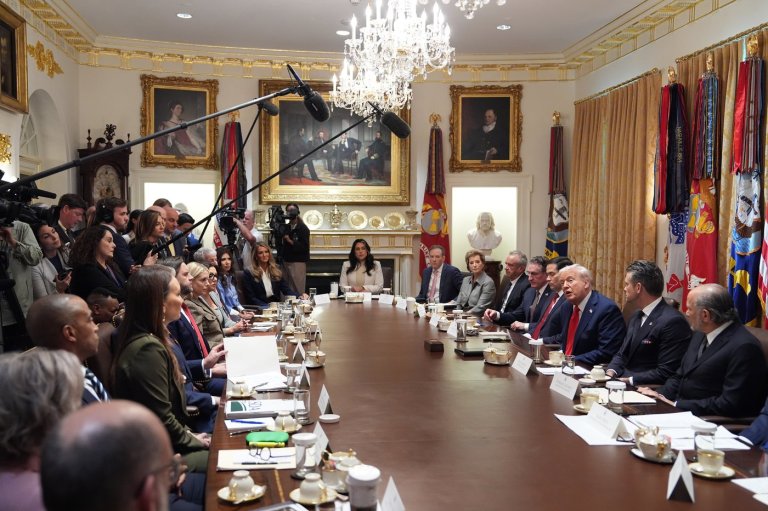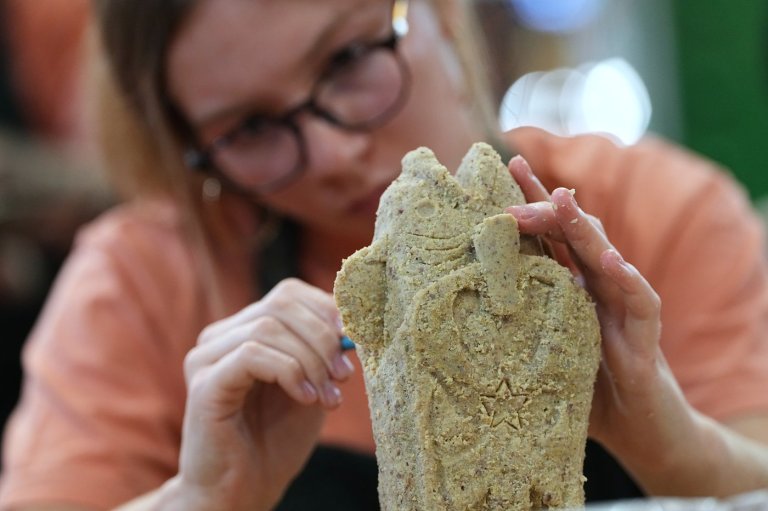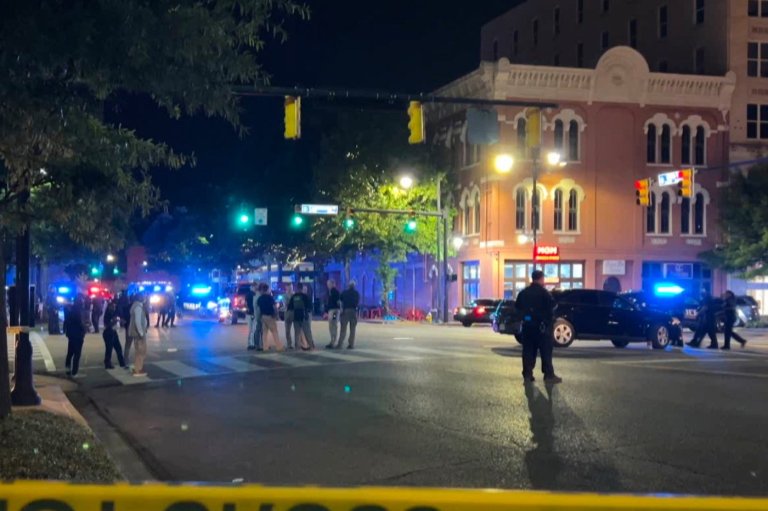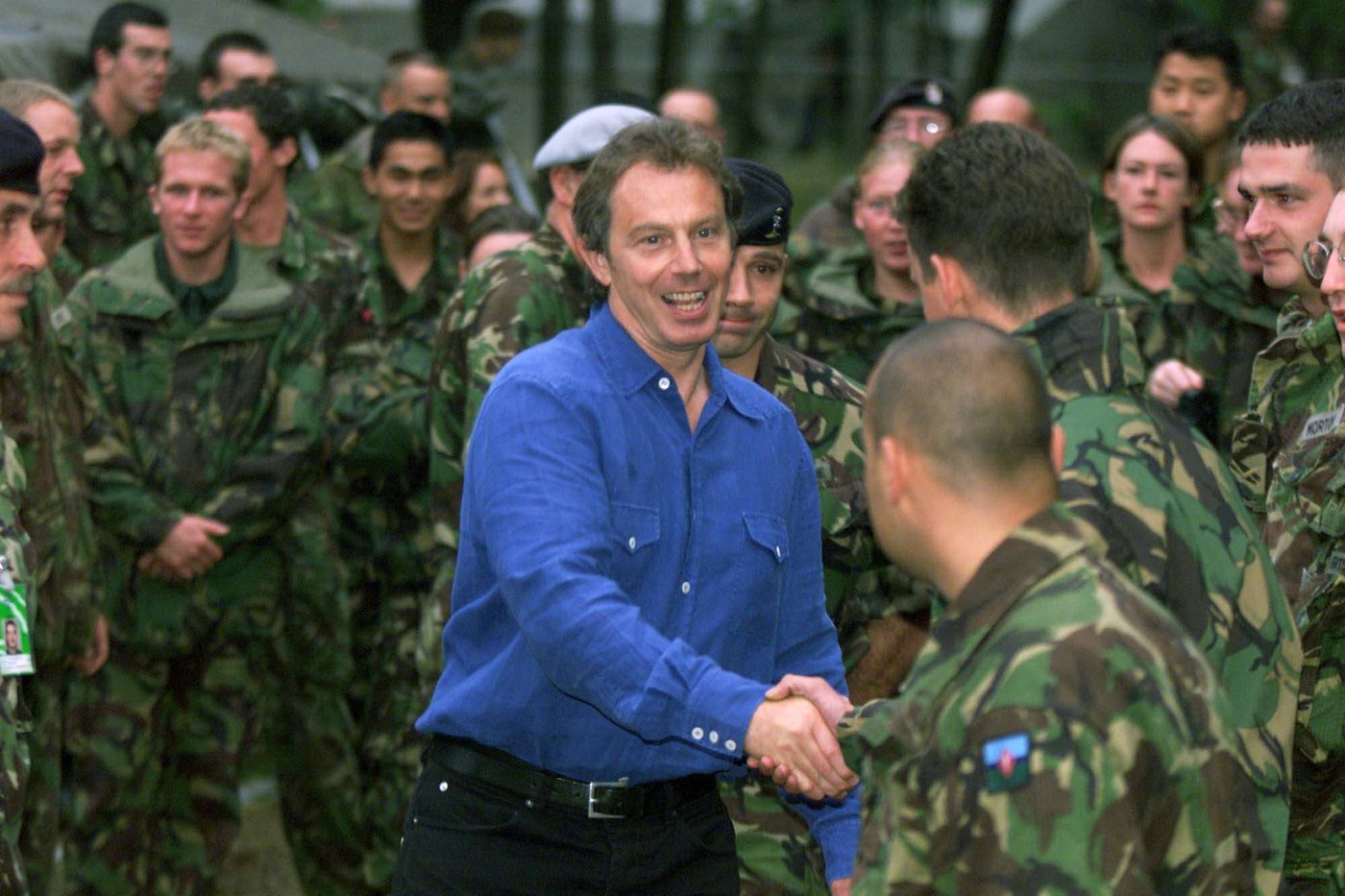
Tony Blair is revered in Kosovo for helping end its war. Many ask if he can succeed again in Gaza
PRISTINA, Kosovo (AP) — A U.S. peace plan has propelled former British Prime Minister Tony Blair to the forefront of efforts to end the Israel-Hamas war in Gaza. While his legacy in the Middle East is controversial, especially given his role in taking the U.K. to war as part of the 2003 U.S.-led invasion of Iraq, there is one place he is revered as a hero: Kosovo.
As prime minister, Blair — along with then U.S. President Bill Clinton — played a pivotal role in putting together an international coalition that conducted airstrikes in 1999 to end Yugoslav President Slobodan Milosevic’s crackdown on independence-seeking ethnic Albanians in Kosovo.
Blair’s popularity in Kosovo soared in the aftermath of the war, even leading to the emergence of a new name for boys: Tonibler, the phonetic spelling of Tony Blair’s name in Albanian.
Tonibler Gashi, a 24-year-old medical student in Pristina, said he is proud of his name.
“My parents wanted to symbolize the state of gratitude and respect towards the great man who, without him … we wouldn’t be here talking Albanian in Kosovo,” he said.
But whether Blair’s success in Kosovo can be replicated in Gaza’s vastly more complex and volatile environment remains deeply contested.
The Gaza ceasefire plan
U.S. President Donald Trump’s plan for Gaza would see Blair potentially leading a transitional international authority, the “Board of Peace,” that would be chaired by Trump himself and would govern the Palestinian territory. The proposed body would combine international expertise, technocrats, U.N. officials and Palestinian representatives, and would function under a U.N. mandate.
It aims to oversee reconstruction, security, humanitarian relief, and the groundwork for more permanent governance structures.
Criticism from Palestinians, Arab states, and international legal scholars focus on Blair’s controversial past, especially his backing of the Iraq War. They have also voiced concerns over sovereignty, citing fears that the transitional authority could sideline Palestinian agency.
In a breakthrough on Thursday, Israel and Hamas agreed to a pause in their devastating two-year war and the release of the remaining hostages in exchange for Palestinian prisoners.
Blair is no stranger to the Middle East. He spent eight years serving as the Mideast Quartet’s envoy, working to promote peace between Israel and the Palestinians, before stepping down in 2015. His resignation was seen as a reflection of the dire state of peace efforts that further deteriorated under Israeli Prime Minister Benjamin Netanyahu’s government.
A defining moment for Kosovo in 1998-99
In Kosovo, Blair and Clinton spearheaded a 78-day NATO airstrikes campaign that forced Milosevic to pull his troops out and cede control of what was then a province of Serbia to the United Nations and NATO. More than 13,000 people, mostly ethnic Albanians, died during the 1998-99 war.
“The fight for Kosovo was not only for Kosovo but for all of us, including my own country, who believe that freedom and justice are worth standing up for and if necessary, fighting for,” Blair said in June 2024, on the 25th anniversary of the war’s end.
Many Kosovars associate Blair with military intervention that stopped mass atrocities and see him as one the strongest Western leaders advocating for political efforts for Kosovo’s plight. He is also admired for his support of Kosovo’s postwar reconstruction and institution-building.
A United Nations Mission in Kosovo, or UNMIK, first led by French diplomat Bernard Kouchner, governed Kosovo until 2008 when it declared independence. The United States and most of the West recognize Kosovo’s independence, but not Serbia or its allies Russia and China.
Some in Kosovo express admiration for Blair’s work in the Balkan country and cautious optimism that his experience might serve Gaza well.
“I would ask him to be as straightforward and as much respectful for the humanitarian cause of Gaza as he was to us,” said Gashi, the medical student named after the former British prime minister.
Bashkim Fazliu, of the We Remember Tony Blair Foundation, said that without Blair’s leadership, “we would simply disappear, vanish from Kosovo.” The foundation was created in 2023 when Blair’s statue was raised in the southern town of Ferizaj, 40 kilometers (25 miles) south of the capital Pristina.
A square in Ferizaj was also named Tony Blair.
Many streets, squares or busts have been named or raised for Clinton and then-Secretary of State Madeleine Albright, too.
“So probably this is the last piece that he wants to solve in the world. And, I believe that he can, if he will have this opportunity,” said Fazliu.
Parallels, differences, and key challenges
In both Kosovo and the proposed Gaza plan, there is strong emphasis on international involvement in stopping atrocities, protecting civilians, rebuilding infrastructure, and laying foundations for lasting governance.
Blair is, nevertheless, a polarizing figure in the Arab world. Skepticism is high about whether external leadership under him might be seen as paternalistic or as undermining Palestinian self-determination.
Vlora Citaku, a former diplomat representing Kosovo at the U.N., considered Blair “the best suited person” to help lead the postwar transition in Gaza.
“Mr. Blair has something that leadership in the world today lacks and needs: courage and empathy,” she said.
Veton Surroi, a Kosovar politician who was part of the 1999 peace talks that ended the war, said Blair’s role in Gaza should resemble that of Kouchner’s in Kosovo, “as someone who continuously develops relationships within the society that will move that society towards more responsibility.”
“I wish that Tony Blair had the same depth and the same commitment in Gaza as he has had in Kosovo,” he said.
——-
Semini reported from Tirana, Albania.
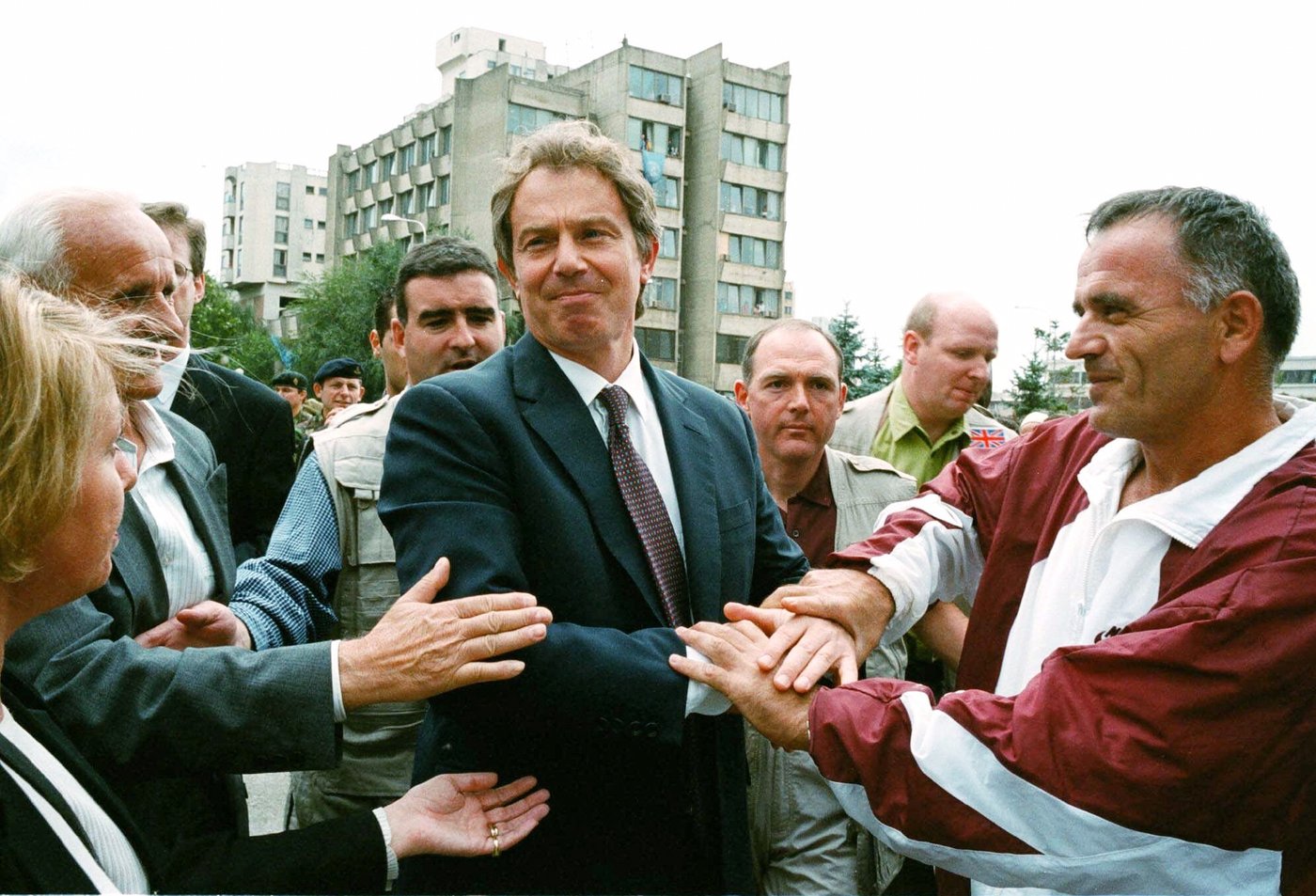
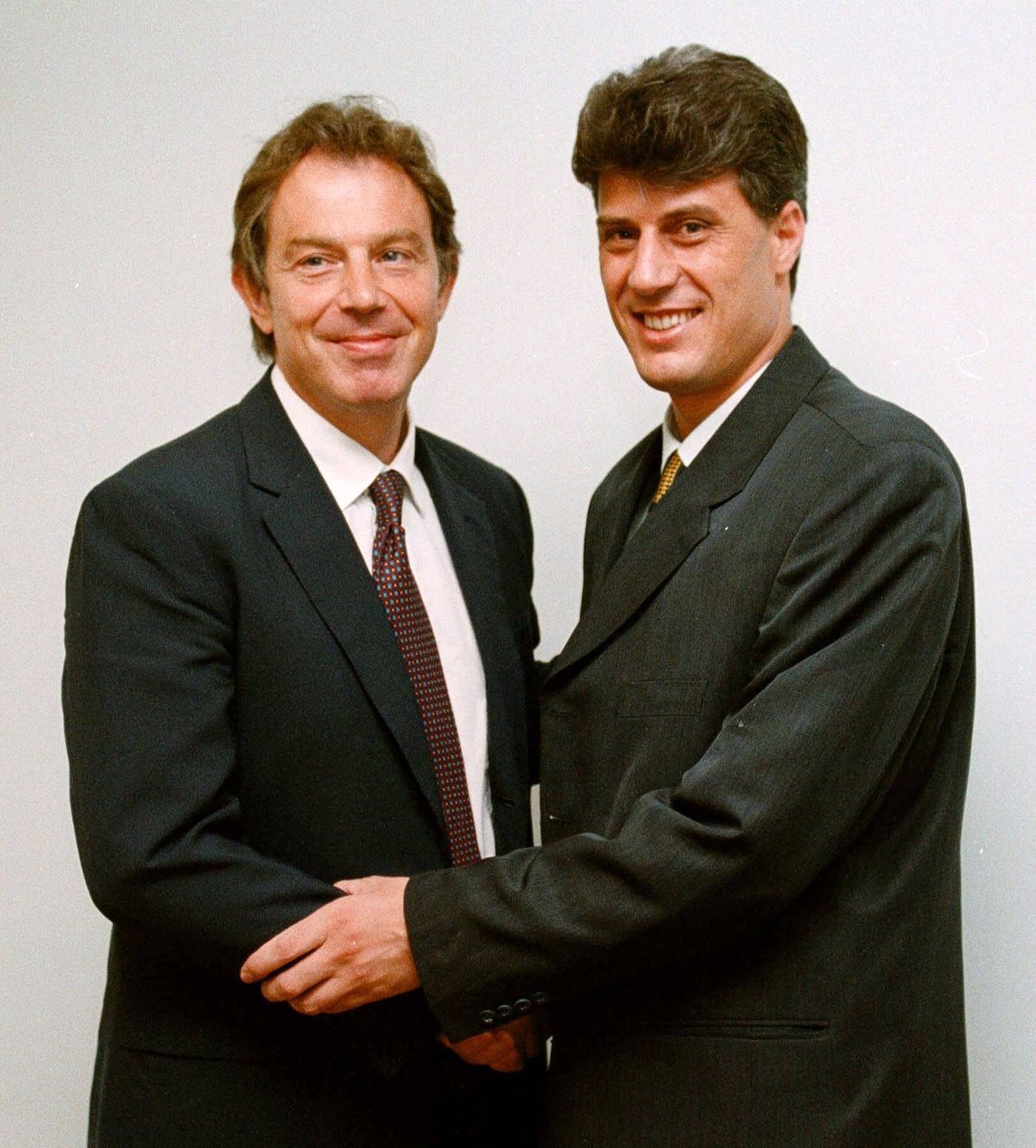
Join the Conversation!
Want to share your thoughts, add context, or connect with others in your community?
You must be logged in to post a comment.













